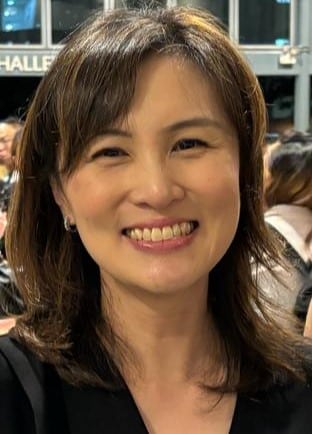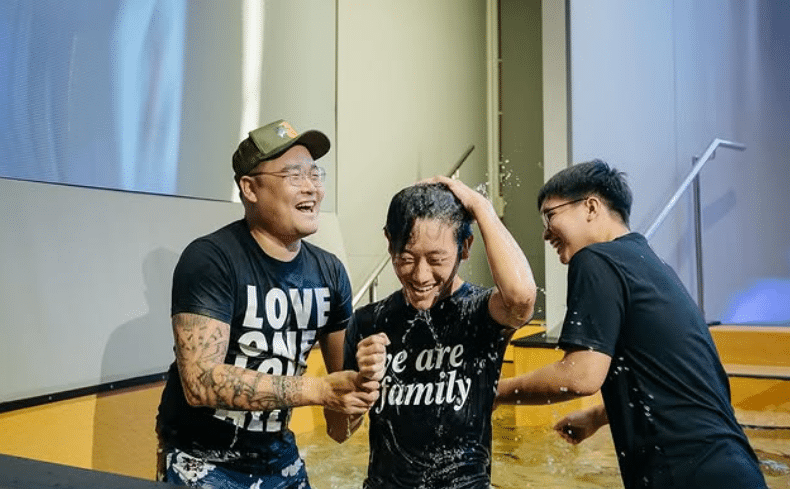Mission-driven fashion designer sews into lives in Kenya
Juliette Leong // August 12, 2024, 5:44 pm

Nicola Yeung was the fashion designer behind the Australian national costume for Miss Universe 2018 (Francesca Hung) and 2020 (Maria Thattil, left). Through a simple desire to obey and be useful, she found the opportunity to use her skills in the mission field.
Nicola Yeung, 33, could easily pass off as one of the models she is accustomed to working with.
The Australian fashion designer holds a university degree in fashion and textile design. She worked as a pattern maker for a medical splints company and was part of the design team of an Australian surf apparel brand.
She then became a freelance bridal designer. Two of her most memorable works as a designer were the Australian national costumes for Miss Universe 2018 (Francesca Hung) and 2020 (Maria Thattil).
But when she and her husband, a plastic surgeon, were given the opportunity to move to Kenya for a year on a medical mission, Nicola was excited but also concerned.
“With my fashion background, I wasn’t sure what use I could be,” she told Salt&Light.
“I knew I definitely didn’t want to waste this precious time, and I wanted to be as useful as I could.”
Together, the couple prayed and asked God to use her for His purpose in the mission field.
Dreaming of Africa
Based in Perth, Australia, Nicola and her husband, Dr Joseph Luo, a plastic surgeon share a passion for Africa. It is one of the destinations on the vision board they have up on a wall at home.
“I knew I definitely didn’t want to waste this precious time, and I wanted to be as useful as I could.”
The opportunity opened up in 2023 for Joseph to volunteer at the AIC Kijabe Hospital in Kenya, one of the few mission hospitals in Africa with a plastic surgery unit.
His expertise as a plastic surgeon brought new lease of life to young children born with cleft lips and others that suffered debilitating burns and other mishaps.
“Joe was in the medical field, so of course he would be useful,” said Nicola.
But despite not having a clear idea of what she would be doing, the couple packed their bags and moved to Kenya for one year with their then-eight month old son, Lucas.
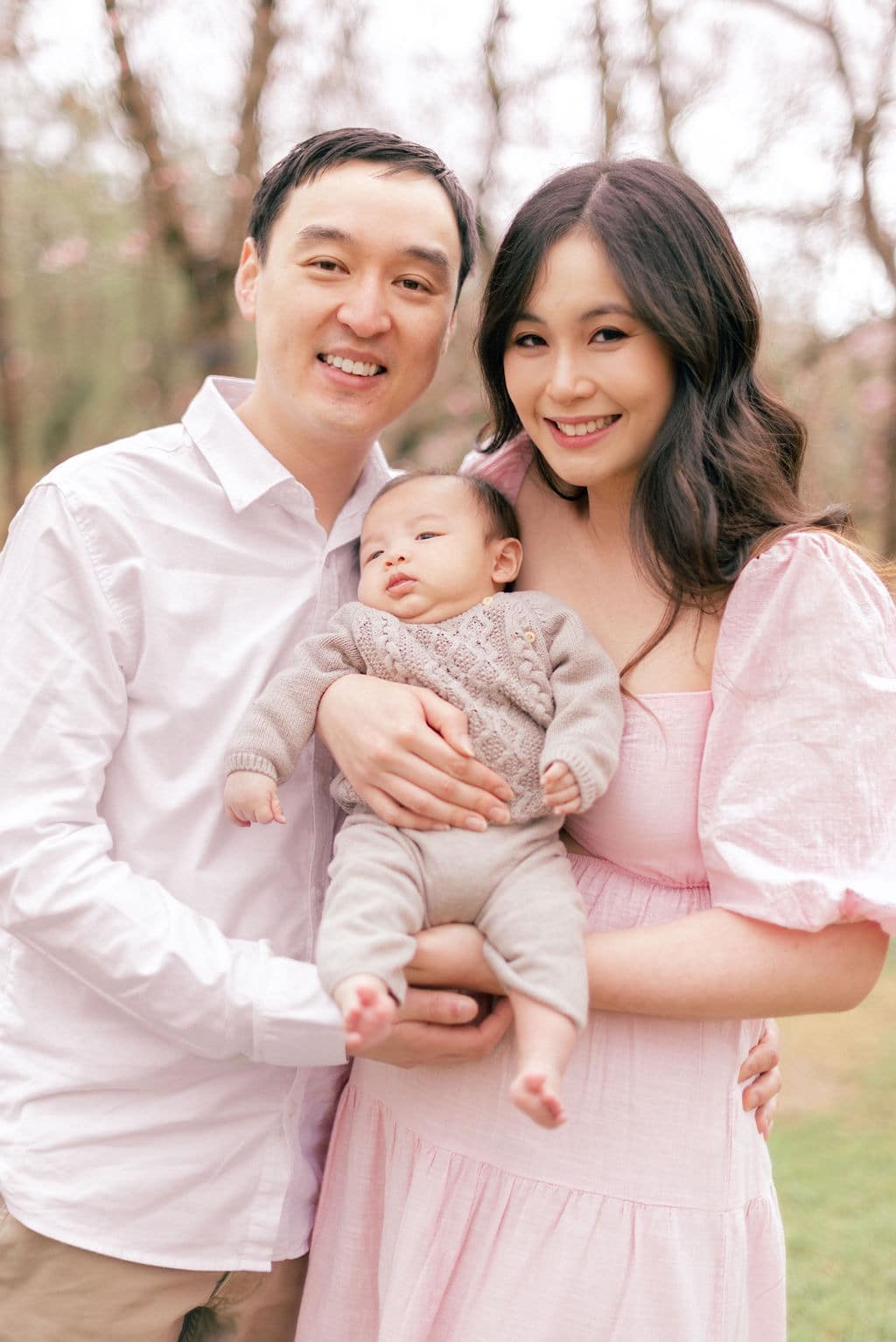
Nicola and husband Dr Joseph Luo with their son, Lucas, moved to Kenya for a year on mission.
Once they were there, God was quick to answer their prayers.
“The experience that I had gained working in the industry was perfectly tailored to help these ladies.”
A long-term missionary from Kijabe and friend of the founder of Rift Valley Workshop (RVW), connected with Nicola and introduced her to the non-profit cooperative that supports the economic stability and empowerment of the local women.
RVW produces goods ranging from candles and cheeseboards to aprons and oven mitts. The proceeds from sales go to the livelihoods of the women.
It turned out that Nicola possessed precisely the necessary skills to support RVW in being a viable social enterprise.
“I worked alongside the ladies at RVW on a few different projects,” she explained.
“We did a number of tutorials on how to make new products such as laptop cases, handbags, medical scrub caps, oven mitts, etc, with the intention of increasing product offering and sales.
“We also worked on quality control.”
“I made sure what they learned was sustainable, so they could still apply the skills and tools after I had left.”
In addition, Nicola helped with projects related to sales tracking, merchandising and machine maintenance.
Nicola used her industry experience to help RVW become sustainable, teaching the women to create new products, while managing sales, sourcing materials and improving administrative systems.
“I was so glad, because all the experience that I had gained working in the industry beforehand was perfectly tailored – no pun intended! – to help these ladies.”
Located in a popular and busy part of town 10 minutes from her house, RVW was started – serendipitously – by another fashion designer married to a doctor.
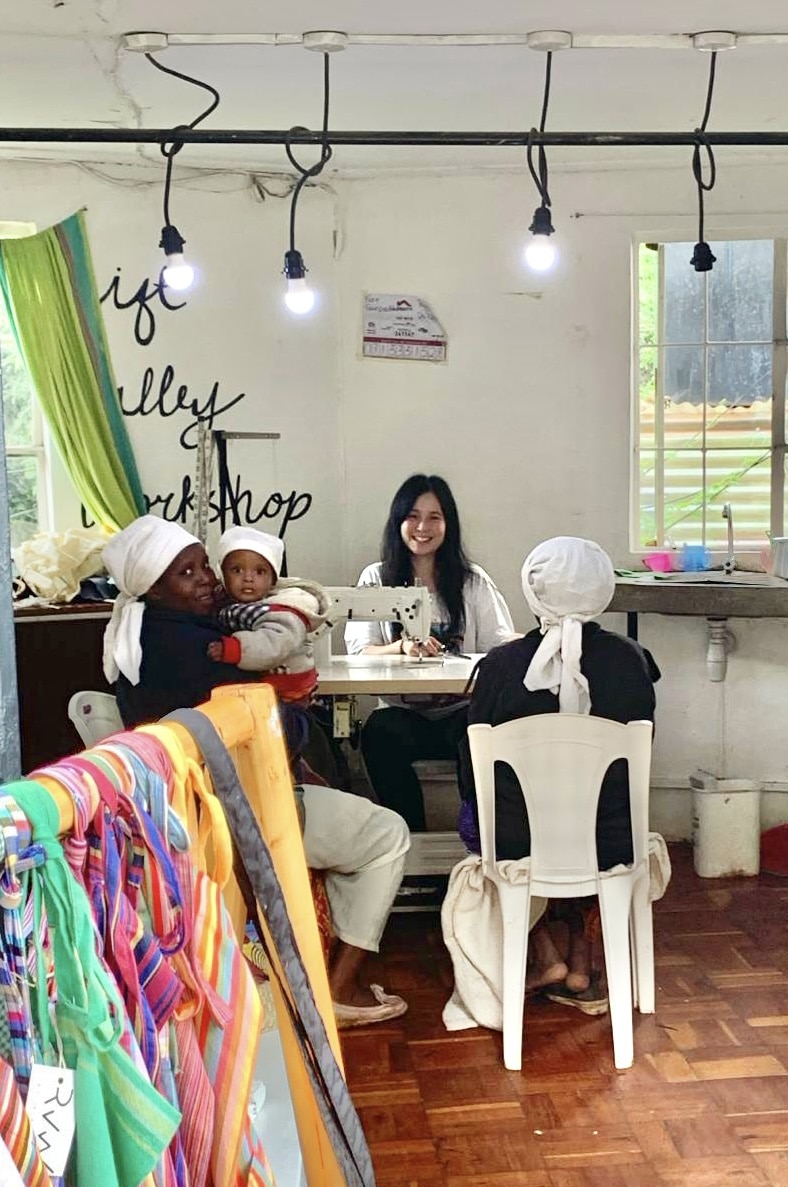
Nicola used her industry experience to help Rift Valley Workshop become sustainable, teaching the women to create new products, while managing sales, sourcing materials and improving administrative systems.
Many of the women at RVW are from the Kikuyu tribe and have been internally displaced due to tribal wars in Kenya.
They have endured violence and extreme poverty, often earning only 150 shillings (SGD1.50) for a day’s farm work.
RVW offers them a reliable income over five times higher, enabling them to support their families.
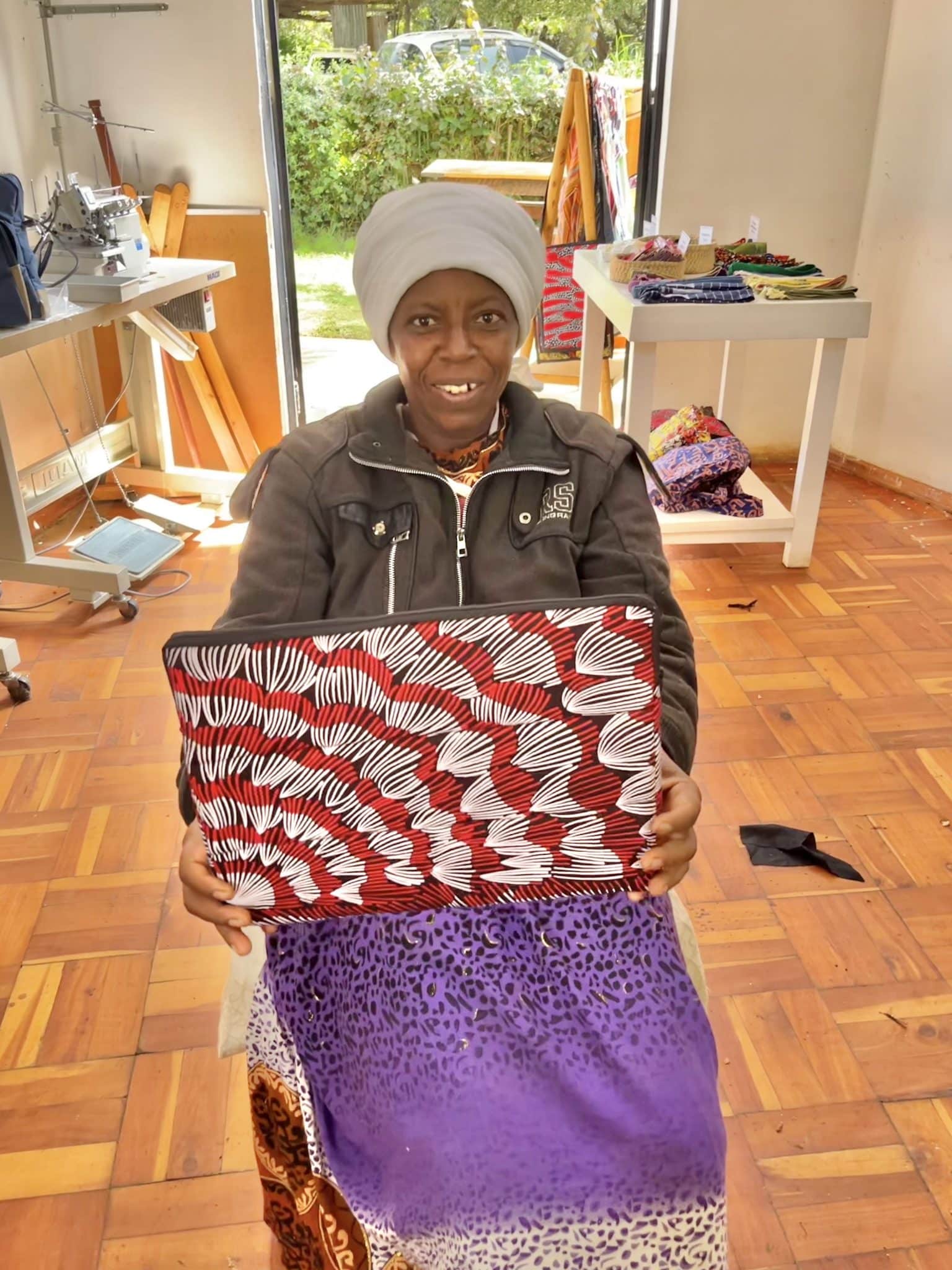
The women at Rift Valley Workshop were taught to make new products for sale, such as this laptop case.
“I tried to make sure that what they learned was sustainable, so they could still apply the skills and tools and support the changes after I had left.”
Four women aged between 20 and 40 years old worked at the workshop, bringing along any children who were too young for school.
Being the breadwinners for their families, the women would tell Nicola how much their work at RVW meant because they could provide food and education for their children.
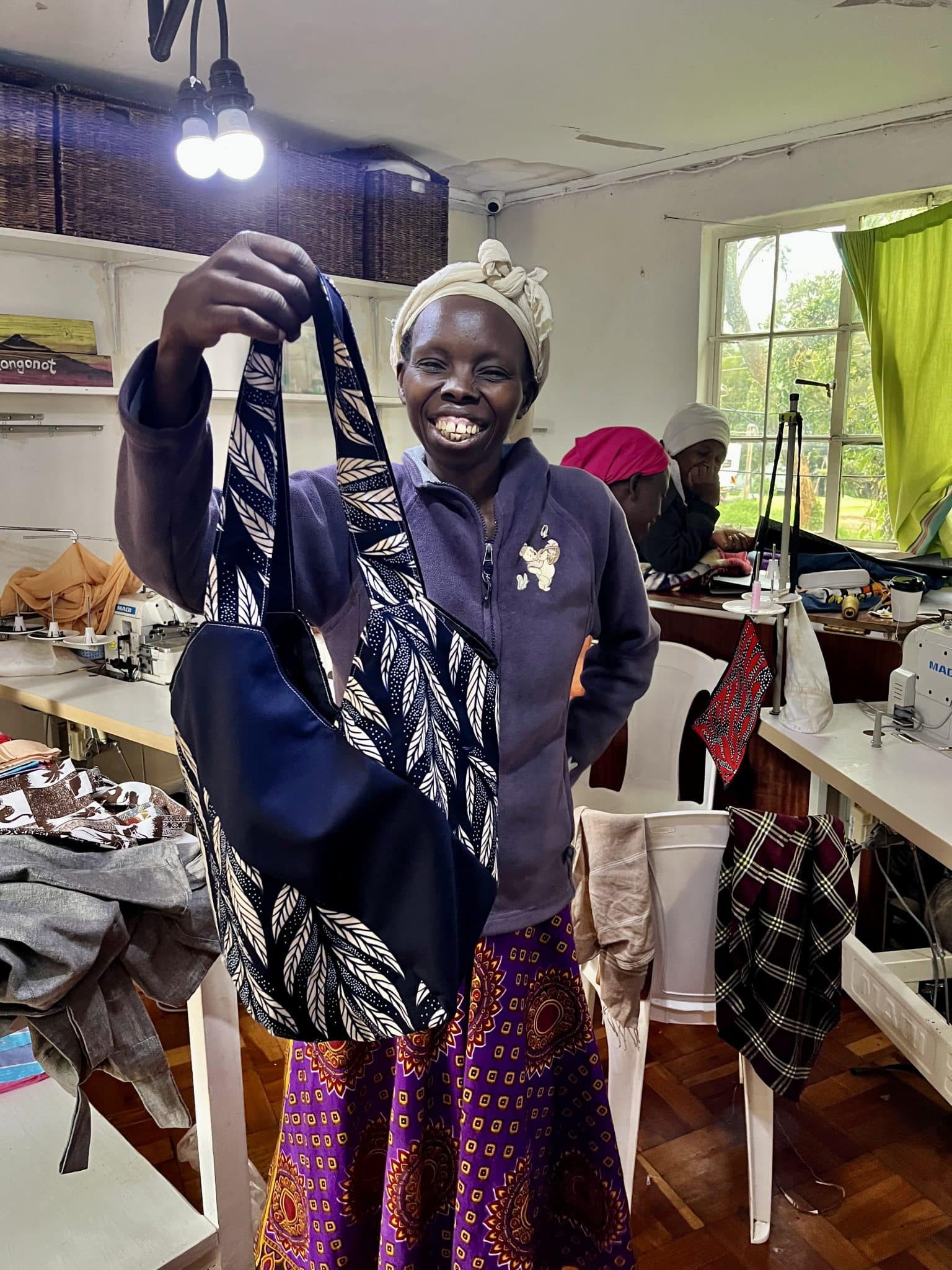
Rift Valley Workshop equips women with skills and provides them with sustainable income to support their families.
“I think this speaks to the heart of most mothers, whatever their ethnicity.”
“They also shared how they dreamed that one day, they would be able to open an even bigger workshop to provide training to equip other women in similar situations,” related Nicola. “That really warmed my heart.”
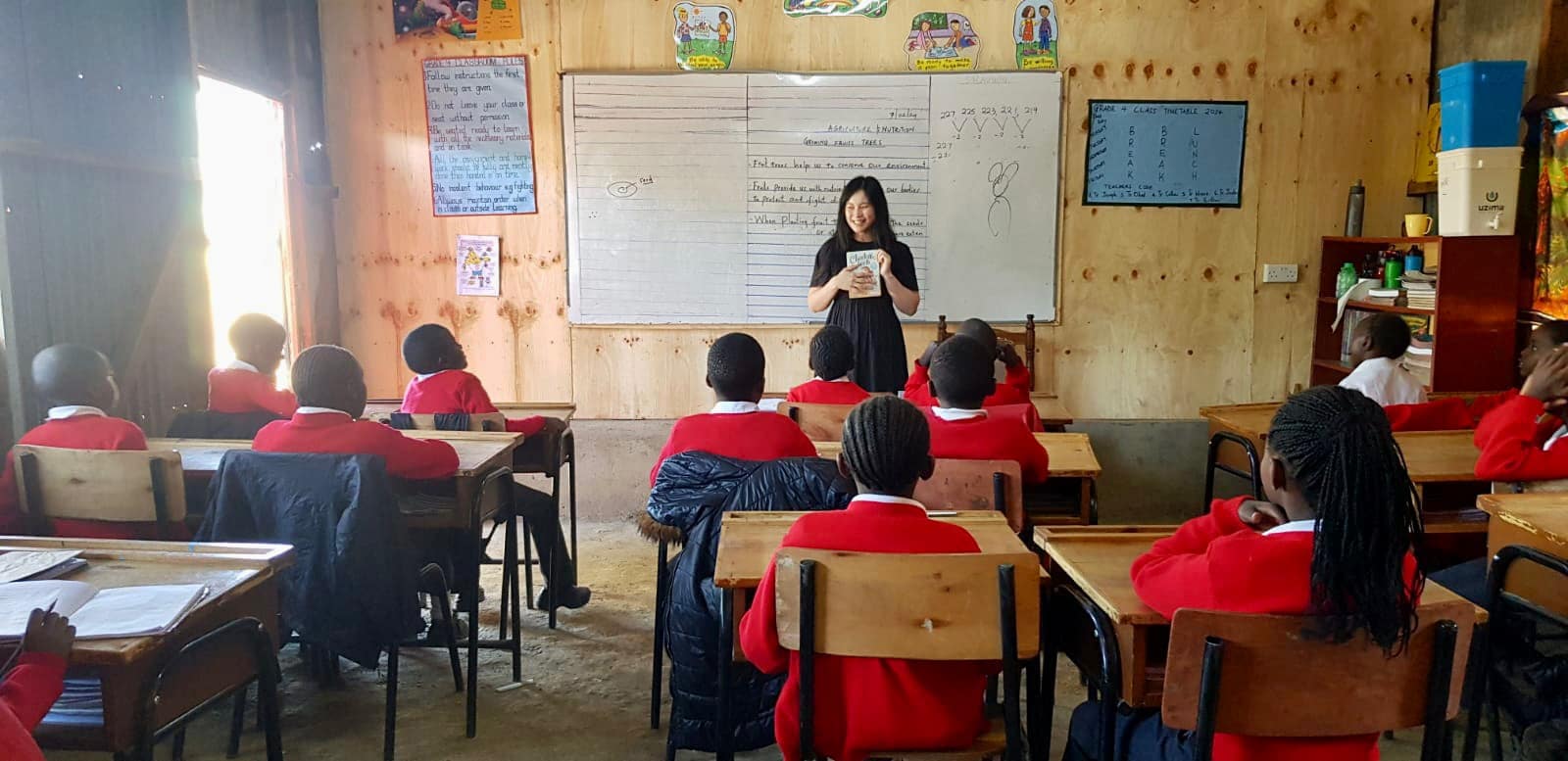
Nicola reading to children at Pisgah Heights School, which she was engaged in besides her work at RVW.
When not at RVW, Nicola, along with two other women from Kijabe, volunteered at Pisgah Heights School, a co-ed school that provides education to orphaned and abandoned children.
They read to children from Pre-Primary up to Grade 7, organised storerooms, set up a library, as well as hand-wrote homework sheets for each student, as it was too costly to photocopy worksheets.
For Nicola, her fashion career is temporarily on hold since having Lucas, and a second son, Joshua, born in June this year, three months after they returned from Kenya to Australia.
“In my heart, there’s still a lot I would like to do in this space. I feel as though I’ve barely scratched the surface,” she admitted.
But tracing God’s hand throughout her career, she added: “Every step has built the foundation for the next, every difficulty has taught me a lesson to prepare me for a future challenge.
“But I believe fashion is still in the future, if not for the immediate season.”
Life in Kenya
Outside of RVW and Pisgah Heights School, “most days were spent looking after my son, who was a baby but grew into a toddler while we were away!” said Nicola.
“How many toddlers get to look out the window and see a family of baboons in their garden?”
“And cooking Chinese food, since there wasn’t much available in Kenya.”
However, in Africa, the Luos had a house helper during the day, a luxury that the family does not have in Australia.
Some other aspects required more work. “For example, we will walk to the markets to purchase our fruit and vegetables, which were often covered in soil because they were freshly dug from the ground,” said Nicola.
“And everything took longer to clean because the water itself is not clean either.
“Meals were prepared from scratch, so I had to multitask with a little one.
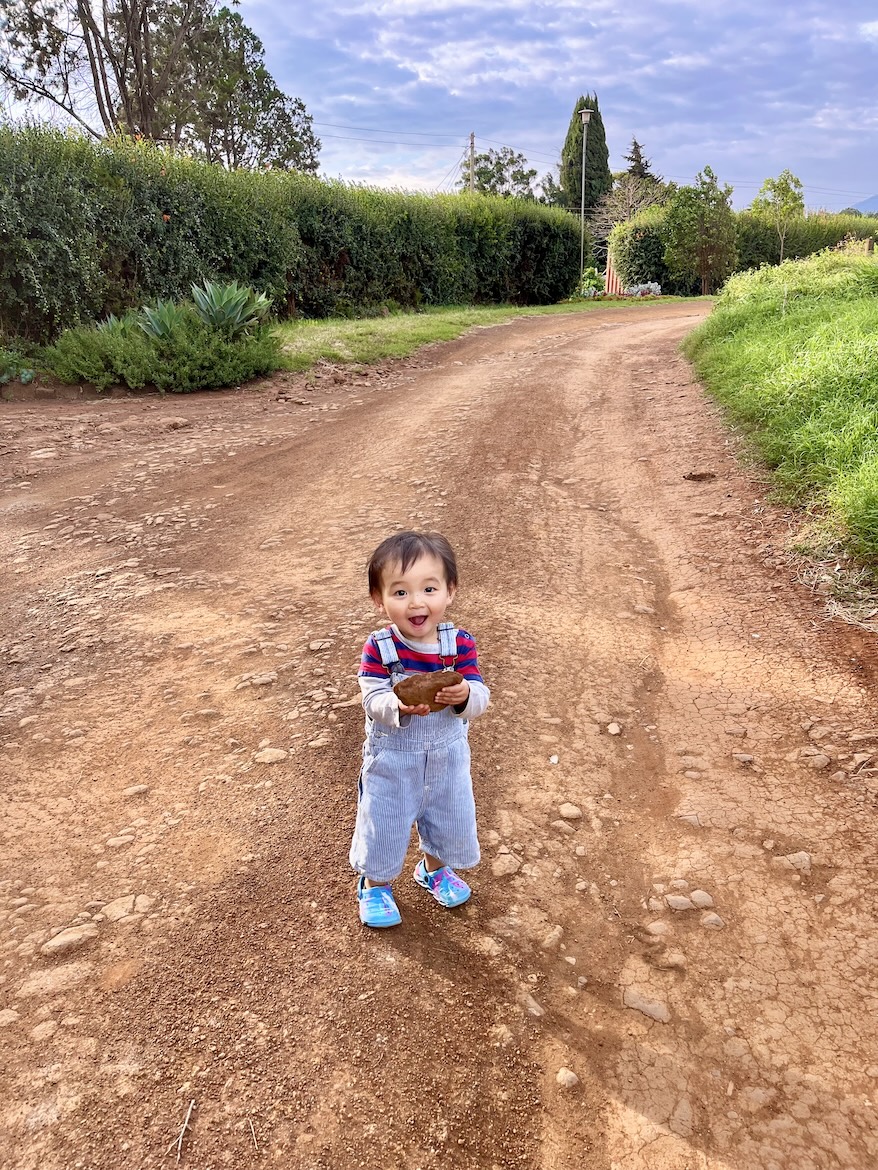
Lucas was only eight months old when he lived in Kenya while his parents were on mission. He was treated to perks like seeing baboons in their garden.
“We also didn’t have quite the same facilities available to us as we do back home, so finding activities to teach, encourage development and entertain Lucas was an unexpected challenge.”
Additionally, there was no extended family around to bond with Lucas. But there were some unique encounters that made up for the lack.
“I imagine he had quite interesting experiences that he normally wouldn’t have,” said Nicola.
“How many toddlers get to look out the window and see a family of baboons in their garden?”
While having a young child may put some parents off going on mission trips, Nicola and Joe felt it was in fact a blessing.
“Lucas was about eight months old when we left for Africa, which I think really worked to our advantage. As long as Joe and I were with him, he didn’t mind – or notice – where we were.
“He adapted incredibly well, and it was just perfect timing.”
If there is one thing Nicola would have done different, it would be to pray for community and connections in the mission field.
“When you’re in a new place with no one you really know and you don’t have your home church, it can feel a little isolating at times. This was something I didn’t really anticipate missing.”
Nicola emphasised that going overseas and working in the mission field does not magically boost one’s spiritual life.
“Perhaps if we had gone somewhere where we experienced persecution or more challenging circumstances it would be different,” she said.
But life in Kenya was relatively stable, so their walk with God required the same discipline as it did back home.
The family attends church frequently, and prays together during meals and bedtime. Nicola and Joseph regularly read Bible stories to Lucas.
Besides structured family devotion time, husband and wife believe in introducing God to their children through everyday conversations and pointing God out in daily life to help them see how He is involved everywhere and in everything.
“I think this works well with Lucas being at toddler stage, while he’s still learning to talk and sit still,” Nicola said.
He looked after us perfectly
Before the couple embarked on their mission trip, there were concerns related to health, safety, finances, career development and planning for a family.
“If anything did happen, it would be completely under His control.”
Nicola said: “In our preparation course, they touched on things like terrorist attacks, road deaths, muggings, etc. And of course there were diseases and political riots to take into consideration.
“So these things did sit in the back of my mind,” she shared. It also explained why Joseph’s parents were not entirely supportive of their trip.
But Nicola was reassured by an impression from God that they would be “safe with Him”, giving her peace despite others questioning their decision to go on the Kenyan mission.
“Which is not to say nothing bad or unexpected would ever happen, but rather that if anything did, it would be completely under His control.”
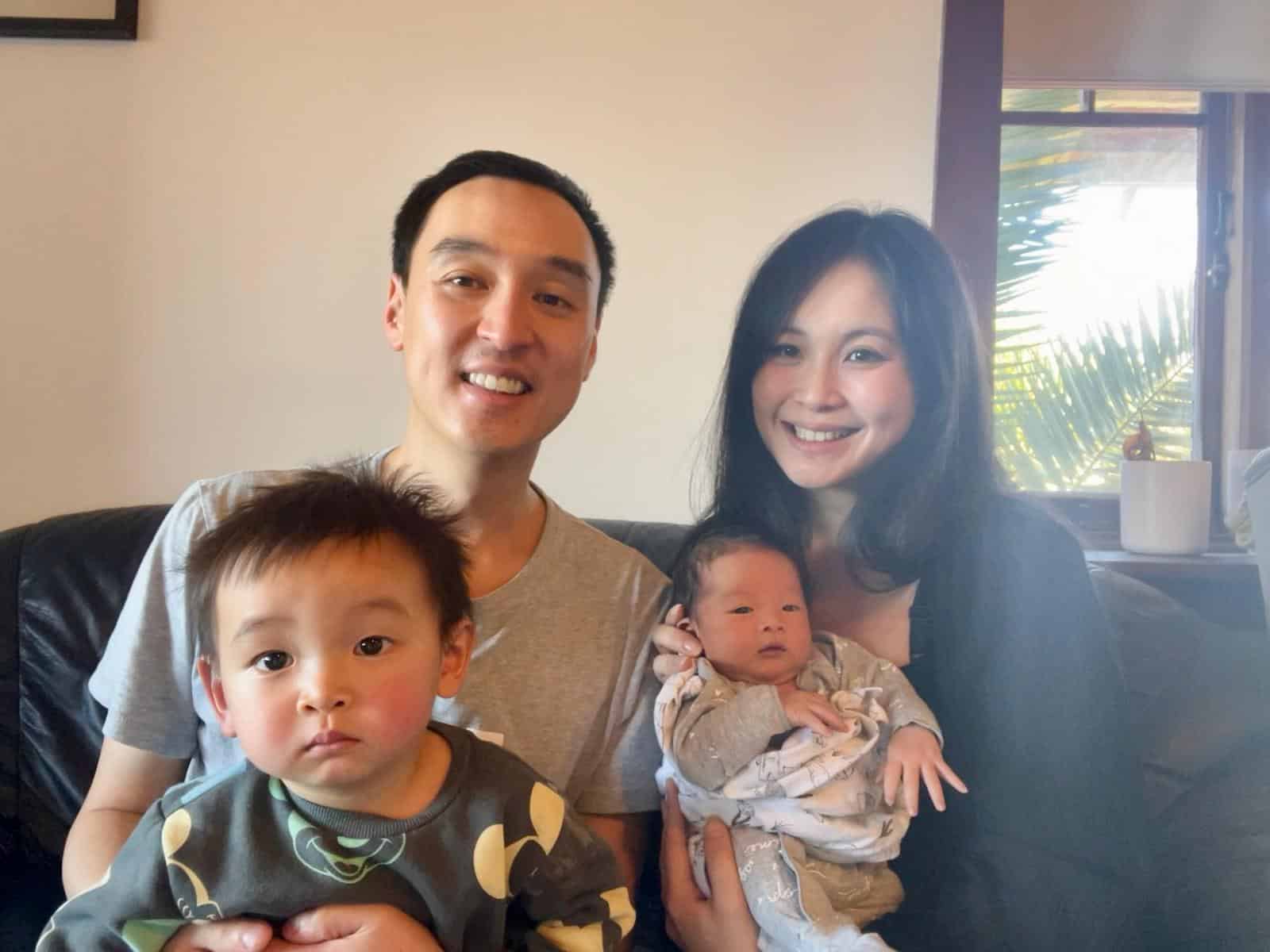
Nicola and Joseph welcomed their second son, Joshua, in June 2024 after returning from Kenya.
Their preparation also included getting vaccinations, medical checks, insurance, visas and ensuring phone access.
“A fun little activity we did was scout out our town on Google maps – both satellite and ground views – which was like a mini virtual tour.”
They also obtained a passport for baby Lucas, learned some local language, completed training modules, and consulted with previous missionaries for tips on adapting to life and culture changes in Kenya.
“But really, in the end, it worked out so perfectly: We had enough savings, health and safety was a calculated risk, and the timing worked out well for career and family life.
“Lucas wasn’t in school yet so education wasn’t an issue.”
To Nicola, the mission trip to Kenya was a dream come true that happened in God’s time.
“I learned from this that God is faithful. He looked after us perfectly during this time.
“I already knew it in my head, but in Kenya, I experienced it.”
RELATED STORIES:
One year in Kenya: A plastic surgeon’s mission to Africa with his young family
Building a “Garden of Eden”: He uprooted his family to plant a mission school in Timor-Leste
We are an independent, non-profit organisation that relies on the generosity of our readers, such as yourself, to continue serving the kingdom. Every dollar donated goes directly back into our editorial coverage.
Would you consider partnering with us in our kingdom work by supporting us financially, either as a one-off donation, or a recurring pledge?
Support Salt&Light